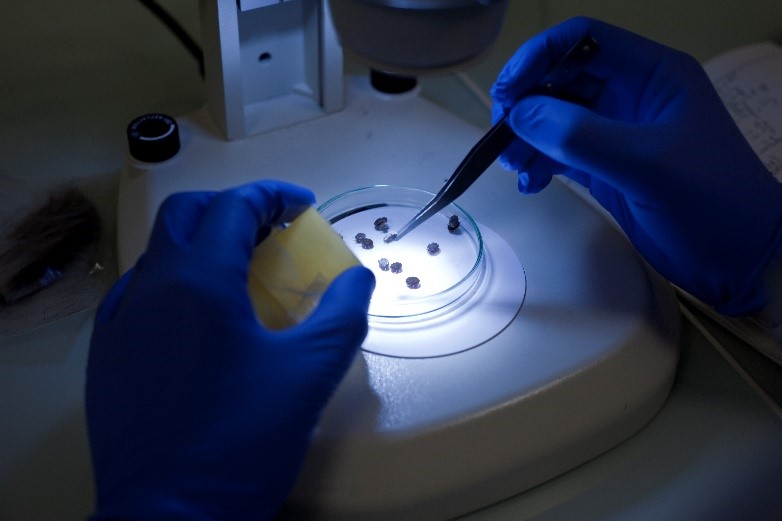Description
Material provided: Personalized training for end-users
Unit definition: 1 week of access
Biosafety level: CL2
Location: Centre de coopération Internationale en Recherche Agronomique pour le Développement (CIRAD) Montpellier, France
Installation name: ASTRE (AnimalS, health, Territories, Risk and Ecosystems)
Website: ASTRE
Description of the facility
Located at CIRAD, Baillarguet campus, the insectarium area (I1 and I2) is designed to house and raise various species of non-infected arthropod vectors. State-of-the-art CL2 (112m²) quarantine laboratories consists of:
- 4 polyvalent rooms with controlled temperature, hygrometry and light, enabling the breeding and maintenance of various species,
- 2 rooms equipped with climatic chambers for tick breeding and for the study of life history traits in vectors.
A common laboratory allows the preparation of the manipulations and an animal room hosts rabbits. The insectary is connected to CL2 (600m2), CL3 (250m2) and animal facilities (small and large animals)
Available vectors
Training will be conducted with INFRAVEC2-distributed tsetse flies and/or soft ticks vector colonies.
Courses overview
Three 5-day theoretical and practical laboratory-based Personalized Training programmes are offered:
- Tsetse flies rearing: Tsetse flies rearing consists in artificial blood feeding, sexing males and females, mating, collecting the pupae.
- Soft ticks rearing: Soft ticks rearing consists in sorting nymphs and adults stages, an artificial blood feeding and mating.
- Experimental infections: this training programme will provide the necessary background to plan, design, and conduct insect infection studies with Containment Level (CL)2 pathogens.
Please specify in your request which training programme(s) you apply for.
Theoretical modules
- Biology and ecology of the studied arthropods
- Facility design and operation
- Experimental design for vector competence studies
Practical modules
- Arthropod rearing in dedicated non-contained insectary
- Arthropod infection procedures: artificial blood-feeding, dissection and sample collection
Equipment used
Trainees will use the following equipment:
- rooms with controlled temperature, hygrometry and light
- Climatic Chamber
- Stereo microscope
- Binocular magnifying glass
- -20°C degree freezer and refrigerator
- Refrigerated table
- Artificial feeding equipment
- Lab equipment
For more information, please contact us.

